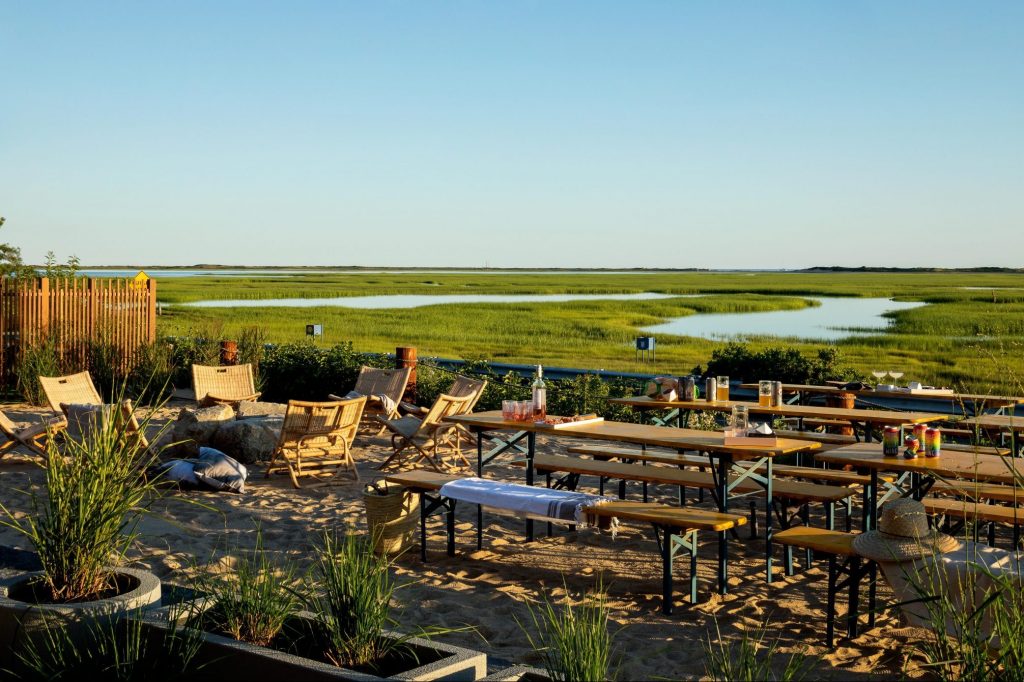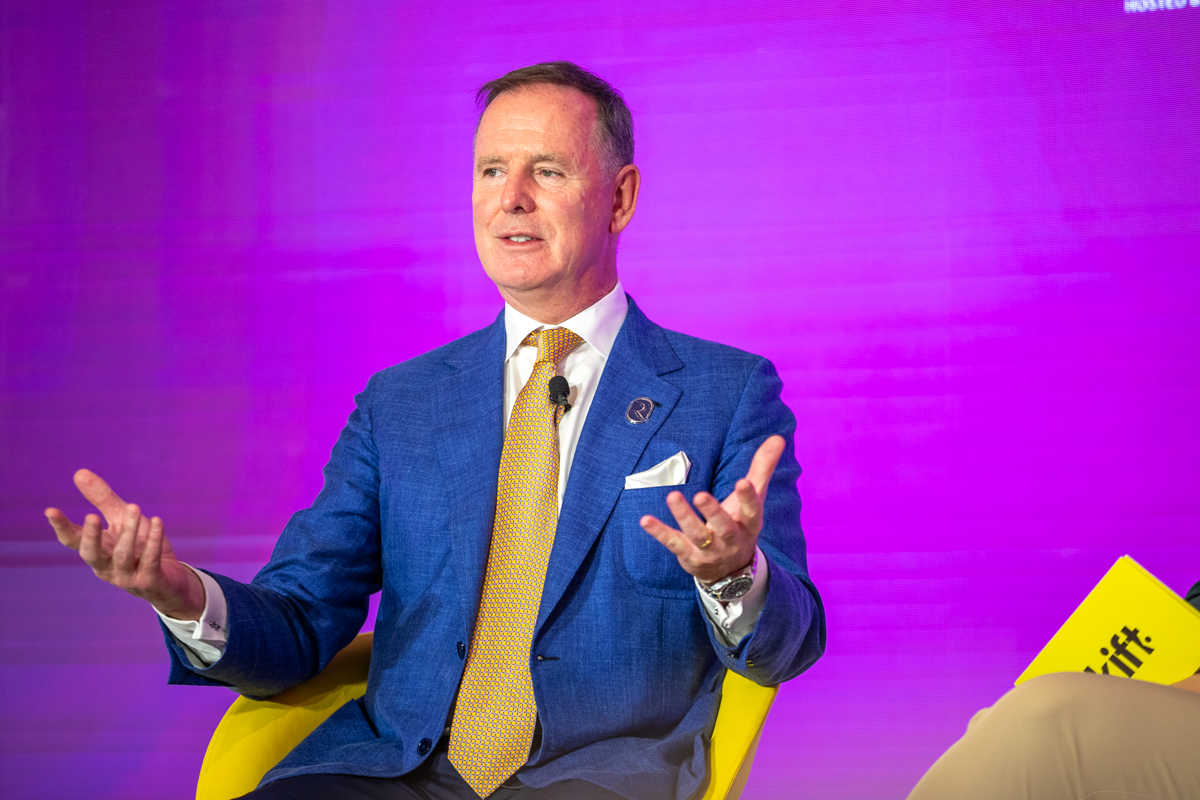Hotel Operators Prepare for a Peak Summer Travel Season That May Never Check In

Skift Take
Seasonal hotels normally would be revving up now in preparation for an onslaught of summer travelers. But this year, there is uncertainty in whether summer travel will be a pent-up rush or a slow trickle.
Coronavirus fears and precautionary measures sent the U.S. travel industry into a nosedive in March, a month when many seasonal hotel owners begin to prepare properties for the peak summer travel season. But shelter-in-place orders around the country and construction moratoriums in places like Pennsylvania and the Bay Area hinder the ability to throttle into a peak season that may never arrive. Hotel operators say they are still ready to open for summer, but the question is when their local governments will let them.
“If we miss July, August, and September, we’ve missed 75 percent of the revenue stream for those properties that are our six-month seasonal properties,” said Peter Twachtman, CEO of northeastern U.S. hospitality company Lark Hotels.
Get the Latest on Coronavirus and the Travel Industry on Skift's Liveblog
Lark Hotels closed all its properties on March 18 and furloughed 150 employees, keeping a skeleton staff to look after each hotel. The executive team took pay cuts, and the company then applied for Paycheck Protection Program Loans for each of its hotels in areas like Cape Cod, Martha’s Vineyard, and the Southern Maine Coast.
“We’ve buckled down and tightened up expenses,” Lark Hotels founder and President Rob Blood said. “That was sort of the stop the leak by putting a finger in the dam moment.”
But now Lark Hotels has to figure out how to reopen its hotels in an extraordinarily uncertain travel environment. U.S. hotel demand was down 14 percent in the first quarter and 41 percent in March, according to CBRE. More than 5,200 properties have temporarily suspended operations, with a bulk of the closures coming from the independent sector, the CBRE report said.
In a normal year, all of Lark Hotels’ properties would be open by May 8, but that is looking less likely. Massachusetts, where the company has hotels in several coastal cities and towns, Tuesday extended its non-essential business closure mandate to May 18. Hotels for leisure purposes are deemed non-essential in the state.
“There won’t be any ramp-up at the end of the day,” Twachtman said. “But fortunately, we were in a place where we were starting to get ready. From an operations standpoint, the physical hotels are more or less ready. What will be different is the myriad of details.”
Every Minute Counts
The Lake House on Canandaigua in the Finger Lakes region of New York ranked late last year as one of Vogue’s most anticipated new resort openings of 2020. The 125-room compound currently under construction will have a lakefront bar, spa, and a variety of restaurants.
The hotel was on track to have a staggered opening beginning with a casual restaurant on Memorial Day with another restaurant and multiple hotel buildings to open throughout the summer. But coronavirus restrictions, including a brief halt on construction, threw the development team’s opening plan in jeopardy.
“None of us had experience doing something like this,” said Doug Bennett, a co-developer on The Lake House. “It’s hard enough to open a hotel let alone navigate this crisis.”
After about a week of no construction, the Lake House development team was able to get back to work. While things aren’t entirely back to normal, Bennett said resources have been shifted to enable initial phases to open on time. Construction crews working on the last hotel building expected to open have been moved to other parts of the resort further along in the development pipeline.
“We’ll be ready to open Memorial Day. The question is will we be allowed to open Memorial Day,” Bennett said. “Construction-wise, we’ll be ready. Staffing-wise, we’ll be ready. But we’ll be monitoring if it’s the right thing to do.”
The New Normal
An emphasis on health and safety will be more important than ever during the summer 2020 travel season.
Mount Vernon Co. founder and Chairman Bruce Percelay partnered with BioClear Pathogen Solutions to understand and mitigate against any coronavirus risk at his hotels, including Nantucket’s 21 Broad and 76 Main hotels as well as the Revolution Hotel in Boston.
“When a guest enters a room, whether it was last occupied for a day or for a month, it will have been Covid-19 treated,” Percelay said.
The hotelier feels boutique specialty hotels will outperform large conventional chains, particularly convention hotels. The hotels that will recover are those that can be easily driven to and attract a regional clientele versus international, Percelay said.
In New York, The Lake House development team is preparing for opening day differently than previously expected. Job fairs are hosted online instead of in person. Social distancing and heightened cleaning precautions will be a mainstay as soon as the first guests arrive, Bennett said.
The team is also drafting a document anticipating other changes like operating restaurants and bars at 50 percent capacity levels, having hand sanitizer stations at all entry points, and sourcing face masks that match aprons. Stylistic touches can make it an engaging experience for customers while still practice social distancing, Bennett said.
The Lark Hotels team is at work on assembling 20-page guides on new cleaning procedures and trainings for their summer workforce.
The cleaning protocol will likely adjust to have housekeeping only clean rooms between, rather than during, guest stays. Fewer staff members will be needed this year, as the company pivots to technology platforms to tend to guest needs while maintaining a physical distance. Travel restrictions requiring arriving visitors to enter 14-day self-quarantines hinder hiring an international seasonal workforce, typically a strong labor pool in places like Cape Cod, Nantucket, and Martha’s Vineyard.
“We are not anticipating being able to bring people from out of country this year, but we will try,” Twachtman said. “Unlike other years when it’s been almost impossible to put together housekeeping staff from a domestic workforce, I think that will change this year. Unemployment is obviously skyrocketing.”
If there is comfort in the seasonal hotel sector this year, it is that many of these hotels are near some of the largest population centers in the U.S. Most travel experts anticipate drive-to destinations will bounce back before any international travel rebound. Roughly 56 million people live within a six-hour drive of a Lark Hotel property, Twachtman said. But it is more than just hotel owners who stand to benefit.
“In-progress hotels in our area were deemed essential and allowed to get back to construction because, really for economic reasons, a lot of the local economies are really planning on these hotels being open in the summer or fall,” Bennett said.







